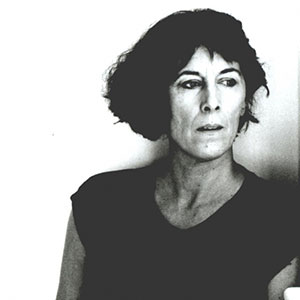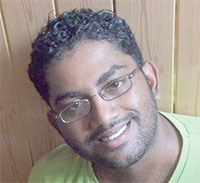THURSDAY NIGHT marked the prize-giving for “The Guyana Annual’s” competition in various disciplines, including Poetry, Prose, Playwriting, etc. While this is a significant event that rewards literature and other art forms in Guyana and will be looked at more in depth in future articles, there has recently been another important competition that is worth looking at.
I am, of course, talking about the Commonwealth Short Story Prize which recently announced its shortlist of writers who are all in the running to win either a regional prize (awarded to various regions: Africa, Asia, Canada and Europe, Caribbean, Pacific) or the overall prize.

The Commonwealth Short Story Prize has racked up some notable prestige over the past few years, borne, no doubt, the way the competition is global in scale, truly highlighting the best writers around the world, and also in the way the competition serves as a way of highlighting writers from countries that otherwise would not be able to garner a spotlight on the world stage of global literature. Further, the Commonwealth Short Story Prize opens many doors for writers, such as the publication in the eminent “Granta” magazine. Guyanese writers have been shortlisted and have won the Commonwealth Short Story Prize, and the now discontinued Commonwealth Writers’ Prize.
Examples of such writers include Mark McWatt, Pauline Melville, Dennis Nichols and Maggie Harris.
Although Guyana does have a legacy attached to the Commonwealth Prizes, more needs to be done to ensure that local writers are aware of the existence of the Prize and other similar competitions, while simultaneously being fully prepared in the skills that would enable them to win.
I hate to be the sort of person who is constantly comparing Guyana to other countries, but it is hard to ignore the fact that two Trinidadians (Kevin Hosein and Breanne Mc Ivor) and a Jamaican (Marcus Bird) have been shortlisted for this year’s Commonwealth Short Story Prize, while a further two Trinidadian writers (Vahni Capildeo and Shivanee Ramlochan) have been shortlisted for the Forward Prizes for Poetry.
While I am excited for and proud of, all of these writers, especially because they belong to the Caribbean, I wish Guyanese writers could be more involved with what’s happening with literature around the world. The question that is continuously explored and answered, but still remains a part of our literary consciousness and heritage is: what needs to be done in order for contemporary Guyanese writers to truly excel at creative writing?
While I can go through the route of pointing out the lack of government incentives that contributes to the failure of fostering a true artistic environment in Guyana – incentives such as Creative Writing programmes at the University of Guyana, writing workshops and competitions, etc. – it is more important to point out that without government support, writers need to foster their own creative environment.
There needs to come a point when writers realise that their art comes from within themselves and therefore, it is up to them to hone and channel their artistic prowess regardless of what else is happening in their surroundings. This basically means that no writer should allow the lack of local opportunities as a reason for them failing to write. There are many examples of writers who relied on the library and on reading as the main source of training they ever received.
Literary icons like Ray Bradbury, Maya Angelou, Charles Dickens and William Faulkner never went to college. It is possible to write in a non-artistic environment. However, there is no negating the fact that the task will be more difficult when contrasted with spaces that encourage creativity and artistry.
The one thing that I have realised that contributes to the lack of artistic output in Guyana is the way in which many young writers – poets and storytellers and dramatists – easily give up. Many of us lose hope when we have that moment of realisation that lets us know how difficult publishing is, or how breaking out into the literary world can be.
The key to success is to never give up, even if you feel like your time is up or that you are too old to try to make a writing career happen. Toni Morrison wrote her first book when she was 39 years old, and Anthony Burgess published his first novel at the same age. Charles Bukowski published his first novel at 51 and Bram Stoker wrote Dracula when he was 50. Would they have achieved success and literary fame had they given up? Many writers come from difficult backgrounds.
Indeed, it may seem like hardships can be used as fodder for creativity, but the truth of the matter is that perseverance is the key to success in the literary world. I do believe that if Guyanese writers continue to write, despite their circumstances, then they will one day achieve the kind of success that lies in, or beyond, awards such as the Commonwealth Short Story Prize and the Forward Prizes for Poetry.



.png)









